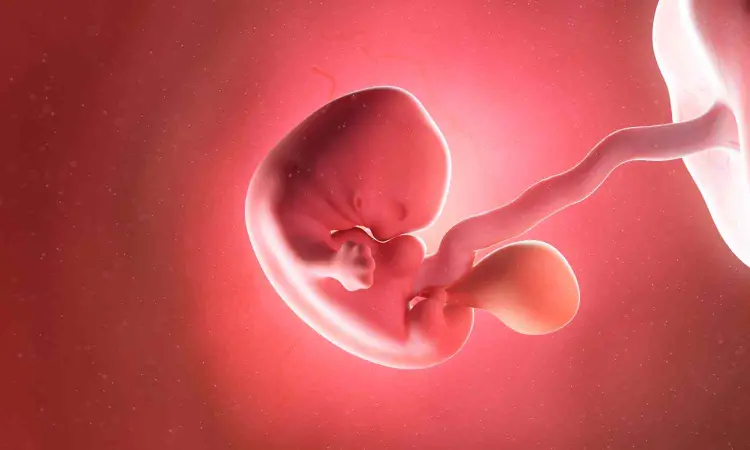- Home
- Medical news & Guidelines
- Anesthesiology
- Cardiology and CTVS
- Critical Care
- Dentistry
- Dermatology
- Diabetes and Endocrinology
- ENT
- Gastroenterology
- Medicine
- Nephrology
- Neurology
- Obstretics-Gynaecology
- Oncology
- Ophthalmology
- Orthopaedics
- Pediatrics-Neonatology
- Psychiatry
- Pulmonology
- Radiology
- Surgery
- Urology
- Laboratory Medicine
- Diet
- Nursing
- Paramedical
- Physiotherapy
- Health news
- Fact Check
- Bone Health Fact Check
- Brain Health Fact Check
- Cancer Related Fact Check
- Child Care Fact Check
- Dental and oral health fact check
- Diabetes and metabolic health fact check
- Diet and Nutrition Fact Check
- Eye and ENT Care Fact Check
- Fitness fact check
- Gut health fact check
- Heart health fact check
- Kidney health fact check
- Medical education fact check
- Men's health fact check
- Respiratory fact check
- Skin and hair care fact check
- Vaccine and Immunization fact check
- Women's health fact check
- AYUSH
- State News
- Andaman and Nicobar Islands
- Andhra Pradesh
- Arunachal Pradesh
- Assam
- Bihar
- Chandigarh
- Chattisgarh
- Dadra and Nagar Haveli
- Daman and Diu
- Delhi
- Goa
- Gujarat
- Haryana
- Himachal Pradesh
- Jammu & Kashmir
- Jharkhand
- Karnataka
- Kerala
- Ladakh
- Lakshadweep
- Madhya Pradesh
- Maharashtra
- Manipur
- Meghalaya
- Mizoram
- Nagaland
- Odisha
- Puducherry
- Punjab
- Rajasthan
- Sikkim
- Tamil Nadu
- Telangana
- Tripura
- Uttar Pradesh
- Uttrakhand
- West Bengal
- Medical Education
- Industry
Metabolic parameters similar in children born via frozen and fresh embryo transfer, study finds

Children born via frozen embryo transfer have similar metabolic profiles to those born via fresh embryo transfer, according to a study published in the open-access journal PLOS Medicine by Linlin Cui and Zi-Jiang Chen from Shandong University, China, and colleagues.
Prior studies have shown inconsistent results on the long-term metabolic health impacts of assisted reproductive technology.
Some have shown that children born via frozen embryo transfer have a higher risk of metabolic disorders, such as obesity, and unfavorable lipid profiles.
Other studies have failed to find any significant metabolic differences between those born via frozen or fresh embryo transfer.
In this study, researchers compared the glucose and lipid profiles of more than 4,000 children between 2 and 5 years of age-approximately half had been born via fresh embryo transfer and half had been born via frozen embryo transfer.
Researchers followed the children for an average of 3.6 years and assessed metabolic factors often associated with heart disease and diabetes, such as fasting blood glucose, insulin, cholesterol, and triglycerides.
They found no difference in any of the metabolic factors among children born via fresh embryo transfer and those born via frozen embryo transfer.
Given the relatively large number of participants in this study, the researchers were able to conduct subgroup analyses.
After dividing the children into groups based on gender, age, embryo transfer state, and method of conception, there were still no differences in metabolic factors among the frozen and fresh embryo transfer groups.
The study provides more information to women and couples weighing the pros and cons of different techniques offered for assisted reproduction, but the researchers noted the need for additional data on the effect of assisted reproductive technology on long-term metabolic health.
The authors add, "Frozen embryo transfer shows no significant adverse effects on metabolic profiles in early childhood, providing crucial evidence for counseling couples undergoing assisted reproductive technology treatment on its safety."
Reference:
Wei Zhou, Wanbing Feng, Jinli Chang, Jingmei Hu, Fuxia Li, Kuona Hu, Jiejing Jiao, Xinyi Xue, Ting Lan, Wenjing Wan, Zi-Jiang Chen, Linlin Cui. Metabolic profiles of children aged 2–5 years born after frozen and fresh embryo transfer: A Chinese cohort study. PLOS Medicine, 2024; 21 (6): e1004388 DOI: 10.1371/journal.pmed.1004388.
Dr Kamal Kant Kohli-MBBS, DTCD- a chest specialist with more than 30 years of practice and a flair for writing clinical articles, Dr Kamal Kant Kohli joined Medical Dialogues as a Chief Editor of Medical News. Besides writing articles, as an editor, he proofreads and verifies all the medical content published on Medical Dialogues including those coming from journals, studies,medical conferences,guidelines etc. Email: drkohli@medicaldialogues.in. Contact no. 011-43720751


